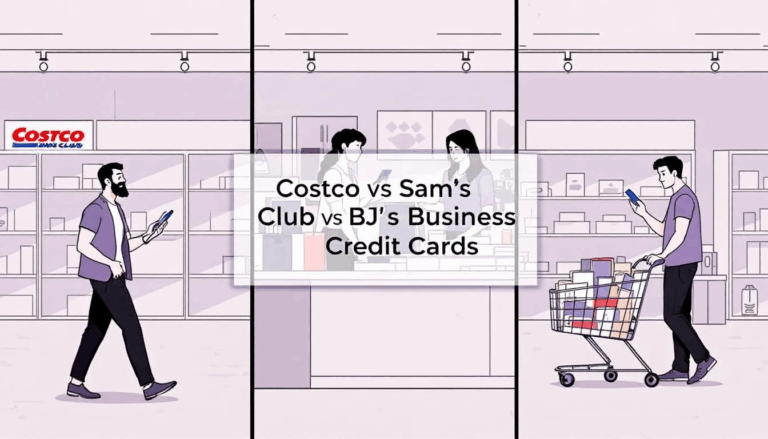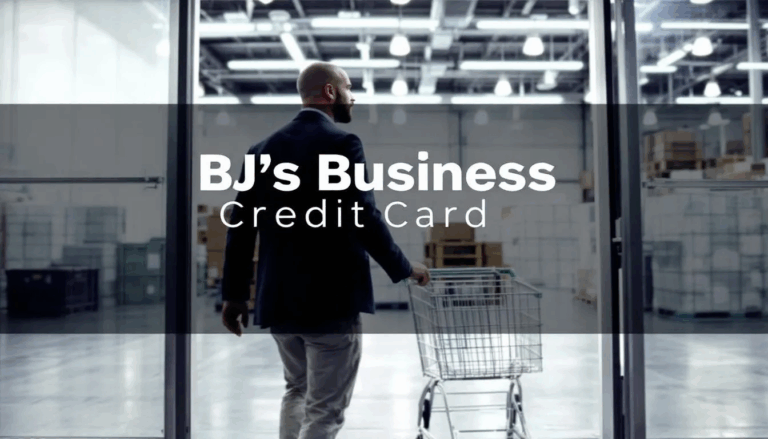

Each wholesale club’s card excels for a different type of business. Costco’s program is best suited for companies with heavy travel and dining budgets, Sam’s Club is ideal for fuel-intensive operations, and BJ’s is the most rewarding for frequent in-store buyers with smaller-ticket purchases.
Choosing the right card isn’t just about which wholesale club is closest to your business—it’s about

Running a small business means keeping expenses in check while still stocking up on the necessary supplies to operate smoothly. For many owners, wholesale clubs like BJ’s Wholesale Club offer significant savings by allowing bulk purchases at discounted prices. To make those savings go further, BJ’s also provides its own line of business credit cards, which reward you for BJ’s

A tradeline is any credit account that appears on a credit report. In personal finance, this could be a credit card account, an auto loan, or a student loan. In the business world, business tradelines encompass vendor accounts, business credit cards, installment loans, and revolving accounts associated with your company.
So, how long does it take for tradelines to appear

Chime is a financial technology company that offers personal banking services through a user-friendly mobile platform. While it offers banking features similar to traditional banks, it is not a bank. Instead, it partners with FDIC-insured institutions: The Bancorp Bank and Stride Bank. This partnership ensures account holders receive the same level of deposit insurance as they would with a traditional

A business bank account is a financial account used to manage a company’s funds. Unlike a personal checking account, a business account separates personal and professional finances, essential for accurate recordkeeping, tax reporting, and liability protection.
ChexSystems is a consumer reporting agency governed by the Fair Credit Reporting Act. It collects data on closed bank accounts, unpaid overdraft fees,

As gym owners navigate equipment pricing, it is essential to maintain cash flow for other expenses. Whether it’s bringing in a top trainer to lead your spin class or expanding your marketing, you need working capital to cover the costs.
How do you supply your gym with top-notch exercise machines without burning through your money? Many gym owners turn to

As a dental practice, your first priority is patient care. But let’s face it – no one likes going to the dentist. Improving the patient experience requires cutting-edge dental equipment to ensure patient comfort.
Unfortunately, dental equipment is probably your most significant expense. Whether trying to replace older equipment or expand your practice, purchasing dental equipment puts a big dent

Many automotive repair businesses use various financing options to ensure they have the most reliable tools to service today’s demand. However, you want to get the best deal possible.
Equipment financing could be your solution, from independent auto repair shops to dealership maintenance and everything in between. How can your shop get new or additional equipment to support your equipment

Your construction, landscaping, or building maintenance company relies on heavy equipment to get the job done. Whether it’s a bulldozer to excavate a foundation or a crane for new construction, you need heavy machinery as dependable as your work ethic.
Construction companies often turn to equipment financing to solve the dilemma of needing new equipment without the capital to purchase

Considering buying business aircraft? You can use planes or helicopters for various needs, such as transporting clients, executive travel, or shipping goods. However, you need to consider the cost and the risks.
Aircraft finance options and prices vary as widely as the planes available. One possible way to finance aircraft is with an equipment loan.